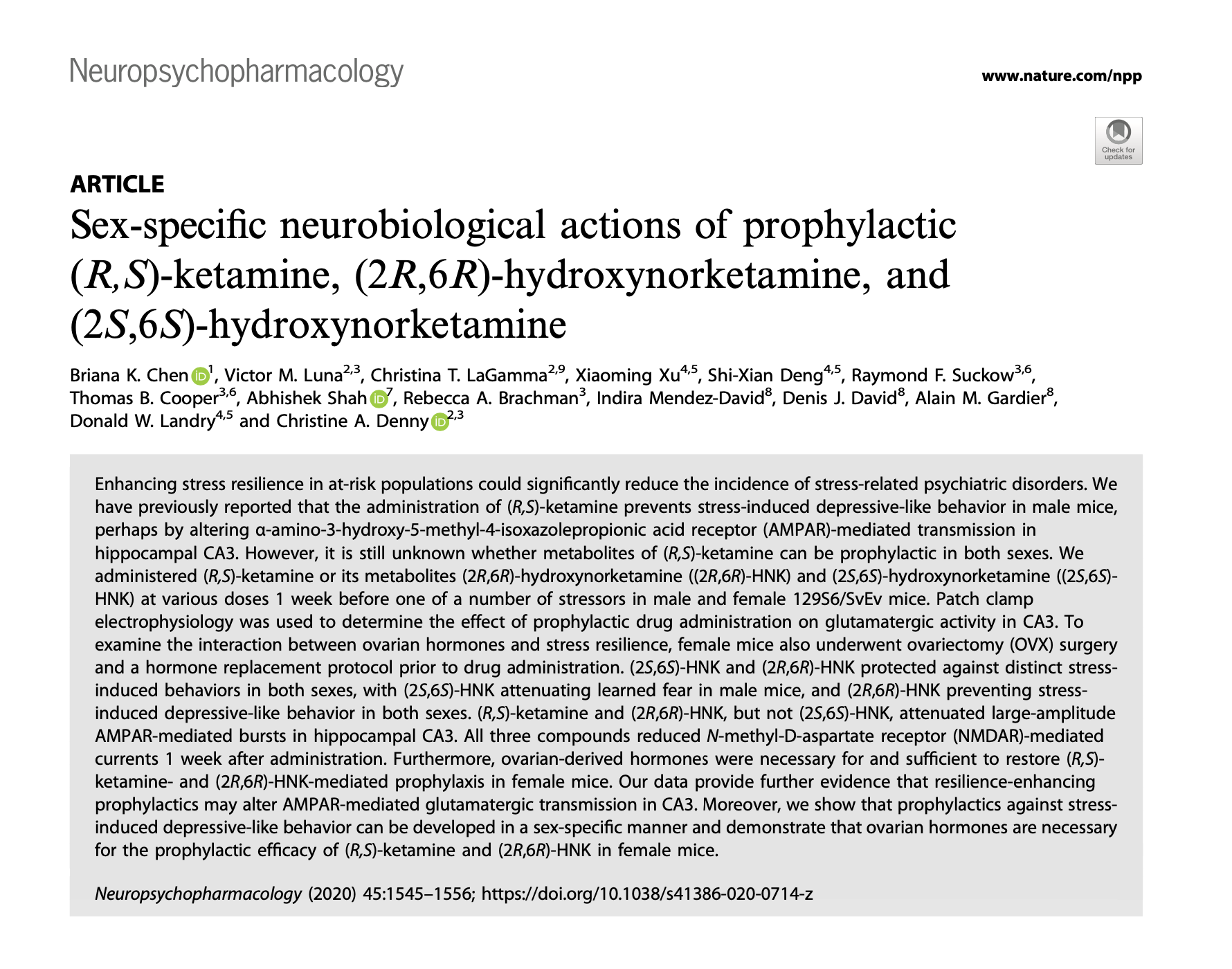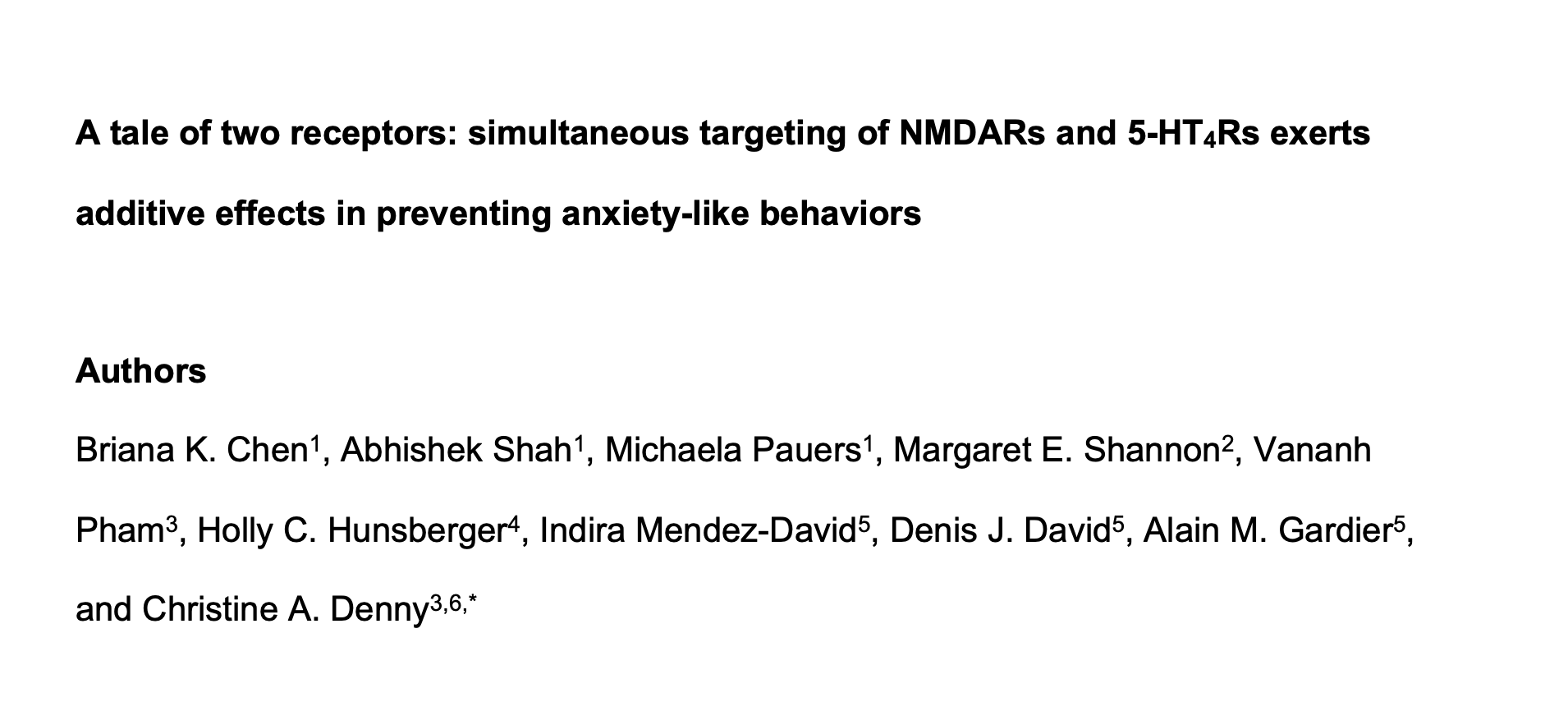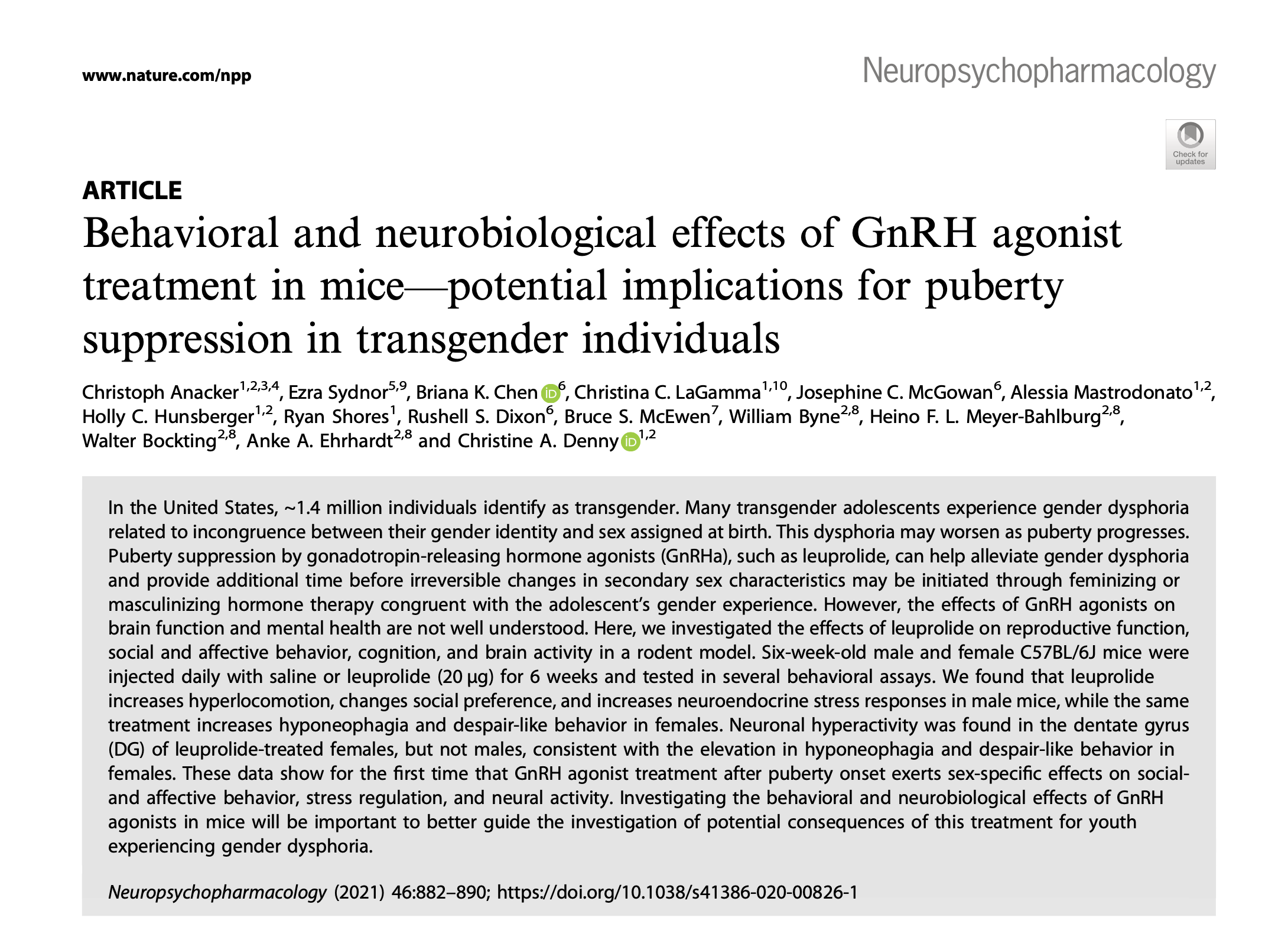Briana K. Chen, Ph.D. is a postdoctoral neuroscientist at Columbia University Irving Medical Center.
Dr. Chen researches sex differences, stress, and psychiatric disorders in Dr. Christine A. Denny’s lab. She is particularly interested in developing sex-specific treatments for depression, anxiety, and PTSD.
Dr. Chen received her Ph.D. in Neurobiology and Behavior at Columbia University. Prior to that, she received her B.S. in Brain & Cognitive Sciences at the Massachusetts Institute of Technology where she worked with Dr. Steve Ramirez in Dr. Susumu Tonegawa’s lab on memory manipulation for the treatment of PTSD and depression.
Developing sex-specific interventions against psychiatric disease
What about existing antidepressants?
Since the discovery of the first antidepressants in the 1950s, medications to treat stress-related disorders such as depression, anxiety, and PTSD have been primarily studied in male research subjects.
However, epidemiological data show that women are more vulnerable to these disorders and experience distinct symptoms of psychiatric disease. Furthermore, there are specific disorders that occur only in women, such as premenstrual dysphoric disorder (PMDD) and postpartum depression.
With a single exception, there are no female-specific antidepressants available.
Why is this a problem?
Down to the cellular level, men and women have distinct biology. This means that our brains are fundamentally different. Yet, current approaches to psychiatry overlook this fundamental truth.
To see the impact of this attitude, all we need to do is look at the data. Current antidepressants exhibit sex-specific differences in treatment efficacy. The antidepressants that do work in women are highly dependent on hormonal status and are often less effective in peri- or post-menopausal women. Moreover, women are at a significantly higher risk of experiencing adverse side effects from existing antidepressants.
Because we have historically used predominantly male subjects, from a preclinical to a clinical scale, our current toolbox for treating and preventing depression, anxiety, and PTSD in women is severely limited.
How can we solve this issue?
In 2016, the National Institutes of Health (NIH) mandated that the biomedical research community integrate sex as a biological variable (SABV) in both animal and human studies. Since this landmark policy, our understanding of how sex shapes health and disease has only continued to increase. By acknowledging the critical role of sex in shaping disease outcomes, increasing transparency in research, and incorporating female subjects, we can significantly improve health outcomes for women. Ultimately, by improving the efficacy and specificity of currently available treatments for women, we can improve therapeutic outcomes for all of society.
Since the beginning of her career in neuroscience, Dr. Chen has investigated how sex differences contribute to the pathophysiology of stress-related psychiatric disorders and characterized the sex-specific effects of pharmacological treatments. She has filed multiple patents and has won numerous awards for her work in developing various sex-specific drugs for the treatment and prevention of stress-related psychiatric diseases, including being listed on the Class of 2023 Forbes 30 Under 30.
From the contribution of ovarian hormones to the sex-specific mechanisms underlying fear learning, Dr. Chen’s work lays the foundation for developing some of the first female-specific treatments for depression, anxiety, and PTSD.
Honors and Awards
Values
-

Representation
From scientists to research subjects, representation matters.
To that end, Dr. Chen is committed to increasing diversity and inclusion in all aspects of science.
-
Rigor
Good science for anyone is good science for everyone.
Dr. Chen is passionate about leveraging SABV to enhance rigor and reproducibility in science.
-
Respect
As scientists, colleagues, and mentors we are better together.
Dr. Chen is committed to maintaining mutual respect and open communication in the scientific community.












